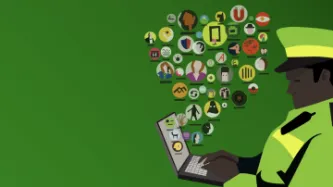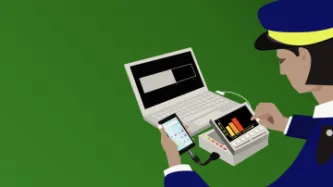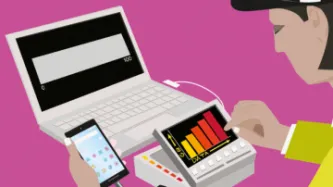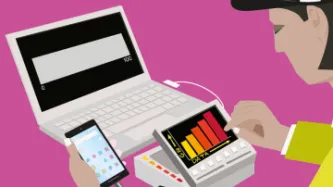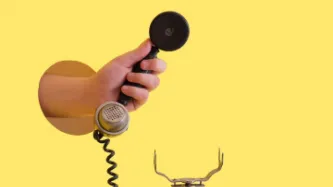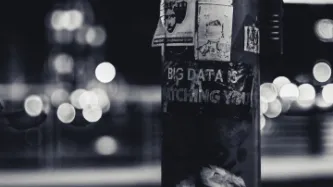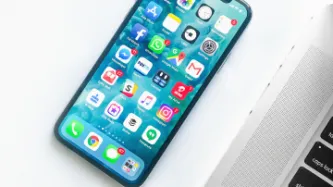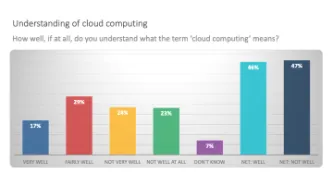Advanced Search
Content Type: News & Analysis
Our mobile phones contain all kinds of data that ranges from photos, videos and emails to information about our health, the places we visit and our leisure time. This data is often relied upon by law enforcement authorities in criminal investigations.
Mobile phone extraction (MPE) tools are used for this purpose as they enable police and other authorities to download content and associated data from people’s phones. These tools are supplied by private companies to security forces and…
Content Type: Guide step
Your Uber app generates a lot of data that is stored in the app and shared with Uber.
It’s important for you to be able to understand the types of data that apps like Uber’s generate. Government agencies may seek access to this data through at least two routes: they could directly access your device and then analyse the data stored in the app and data your app shares and can access on Uber’s servers (and potentially data backed-up to your cloud provider) using ‘cloud extraction’ techniques, or…
Content Type: Explainer
What are ‘cloud extraction tools’ and what do they do?
Cloud extraction technology enables the police to access data stored in your ‘Cloud’ via your mobile phone or other devices.
The use of cloud extraction tools means the police can access data that you store online. Examples of apps that store data in the Cloud include Slack, Instagram, Telegram, Twitter, Facebook and Uber.
How might cloud extraction tools be used at a protest?
In order to extract your cloud data, the police would…
Content Type: Explainer
What do mobile phone extraction tools do?
Mobile phone extraction (MPE) tools are devices that allow the police to extract data from mobile phones, including:
contacts;
call data (i.e. who you call, when, and for how long);
text messages (including who you texted and when);
stored files (photos, videos, audio files, documents etc);
app data (including the data stored on these apps);
location information history;
wifi network connections (which can reveal the locations of any…
Content Type: News & Analysis
The Police, Crime, Sentencing and Courts (PCSC) Bill is currently being scrutinised by numerous civil society organisations such as Amnesty International UK and Liberty for its damaging impacts on peaceful protests, however it also contains important provisions regarding when, if and how the police and other governmental authorities can extract data from your phones and other electronic devices.
Chapter 3 of the PCSC Bill is a legislative response to the UK's Information Commissioner's Office…
Content Type: Report
On 12 December 2018 a member of Lancashire Police Department UK told viewers of a Cellebrite webinar that they were using Cellebrite's Cloud Analyser to obtain cloud based 'evidence'. In response to a Freedom of Information request Hampshire Constabulary told Privacy International they were using Cellebrite Cloud Analyser.
They are not alone. In Cellebrite's 2019 Annual Trend Survey, Cellebrite found that law enforcement is increasingly using 'cloud extraction.' But the…
Content Type: Advocacy
In December 2019 Privacy International made submissions to Police Scotland in relation to documents designed to explain to the public how cyber kiosks will work and what information will be given to victims when Police Scotland extract data from their phone.
Police Scotland rely on 'consent' to seize a phone from a victim. We believe the lack of information provided to the individual regarding extraction, examination, retention, deletion, sharing and search parameters undermines that any…
Content Type: Call to Action
You should know what new technologies police are deploying on your local community. We want to find out if UK police are using cloud extraction tech, what law exists to protect your rights and what safeguards are in place. We need your help.
See our new report for more info on cloud extraction
If you are not based in the UK but have a FOIA regime in your country you can still use our template text below and check if there is a FOIA platform to use here to send it in your own…
Content Type: News & Analysis
Send a Freedom of Information Request to your local police for to see if they are using cloud extraction here.On 12 December 2018 a member of Lancashire Police Department UK told viewers of a Cellebrite webinar that they were using Cellebrite's Cloud Analyser to obtain cloud based 'evidence'. In response to a Freedom of Information request Hampshire Constabulary told Privacy International they were using Cellebrite Cloud Analyser. They are not alone. In Cellebrite's…
Content Type: News & Analysis
Cloud extraction allows law enforcement agencies to take huge amounts of your data from the Cloud via a legal back door. If law enforcement seize your phone or take it from a victim of crime, they can extract tokens or passwords from the device which lets them get access to data from apps such as Uber, Instagram, Slack, Gmail, Alexa and WhatsApp.
In so doing, law enforcement agencies can avoid official channels through cloud companies such as Google, Apple…
Content Type: Long Read
Mobile phones remain the most frequently used and most important digital source for law enforcement investigations. Yet it is not just what is physically stored on the phone that law enforcement are after, but what can be accessed from it, primarily data stored in the Cloud.
Cellebrite, a prominent vendor of surveillance technology used to extract data from mobile phones, notes in its Annual Trend Survey that in approximately half of all investigations, cloud data ‘appears’ and that…
Content Type: Press release
A large number of apps on smart phones store data in the cloud. Law enforcement can access these vast troves of data from devices and from popular apps with the push of a button using cloud extraction technology.
Mobile phones remain the most frequently used and most important digital source for law enforcement investigations. Yet it is not just what is physically stored on the phone that law enforcement are after, but what can be accessed from it, primarily data stored in the Cloud.…


